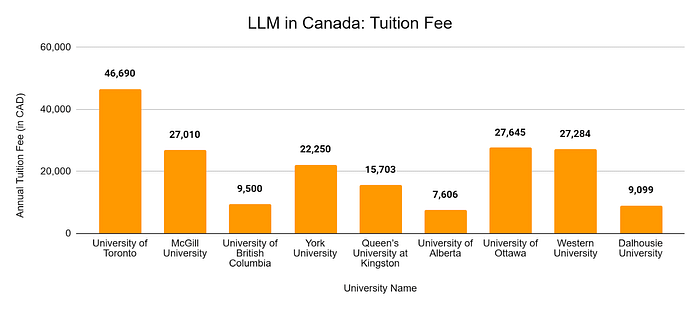
Class action lawsuits provide individuals with a way to take legal action against large businesses that take advantage of them. Usually filed on contingency basis, these suits only get paid out when financial compensation has been secured for their clients.
But just how much do attorneys make? This article will discuss all that and more.
Legal Fees
Lawyers filing class actions represent groups of people with similar complaints, since individuals cannot sue individually in class actions. Representing the class gives lawyers an excellent opportunity to secure large settlements, while their fees for travel and research expenses may also be included as part of settlement agreements.
A judge will examine a settlement offer and decide if it is fair. Once approved, they will divide it among all members of the class, first giving leads plaintiff their share before deducting attorneys’ fees and any expenses from it; once these expenses have been covered by legal representation and payments have been distributed among class members equally.
Once class members receive their settlements, they may be eligible to file claim forms with their lawyers for reimbursement. While this claims process can be complex, their lawyers will provide guidance throughout it all.
As class actions move through litigation, lawyers will negotiate with defendants to secure as much compensation for their clients. Lawyers typically utilize contingency fee agreements – an arrangement wherein payment only occurs if their case succeeds – which are common in class action lawsuits.
During litigation, class members will usually be informed of the lawsuit either through mail or other means, then contact their lawyer to discuss and decide if they wish to participate. Class members who opt out may receive their fees and expenses back.
One of the primary disadvantages of class action lawsuits is that lawyers make millions while their actual clients only see a fraction of that money. A Jones Day study showed that among eight settlements studied, lawyers received twice as much in their share as class members did from claim funds. Furthermore, lawyers often make aggressive fee demands which they can justify with evidence from previous successful cases as justification.
Settlement Fees
In class action lawsuits that involve money damages, attorneys representing the plaintiffs typically get paid from any amount recovered – this could include compensatory or punitive damages – when settlement occurs. After this happens, lawyers must submit their proposed fees and expenses for court approval before billing their clients directly.
Class action lawsuits can be beneficial as they allow one law firm to represent multiple people with similar claims against a single company, providing strength in numbers for victims who would otherwise face financially prohibitive trials on their own.
Step one in a class action lawsuit involves filing a formal complaint with the court. Once served with notice of this lawsuit, defendants have an opportunity to challenge it through motion filings or appeals; otherwise, discovery proceedings begin where lawyers ask defendants for documents and conduct depositions of witnesses.
Whether the case settles before trial or the plaintiffs win at trial, lawyers will subtract their attorney fees and costs from any award made to class members, and distribute any remaining compensation among them in an equitable fashion. In certain instances, class members may not receive cash payouts but rather coupons or vouchers to redeem against future products.
Companies frequently object to the awards of attorney fees awarded as part of class action settlements, yet courts have set legal standards they must satisfy before authorizing such agreements. Courts generally reject any request they deem unreasonable for attorneys’ fees awards.
If you’re involved in a class action lawsuit in New York, finding an experienced and skilled class action attorney to represent your interests is key to getting maximum recovery for yourself and the class action suit. At Morris Bart’s law office in Manhattan we have decades of experience representing clients in various types of class action lawsuits that will ensure you obtain maximum recoveries possible.
Judgement Fees
Class action lawyers don’t represent their clients for only financial gain; in reality, they receive a portion of any funds recovered for them through legal claims brought on behalf of class members they represent in lawsuits. How much this amounts to depends upon many different variables including number of class members represented, size and severity of damages sustained as well as legal complexity of cases involved.
After settling a lawsuit, attorneys are typically paid from a “common fund”. This pool of money serves to pay their fees; once approved by the court, this award must also take into consideration whether such fees are reasonable given what was recovered for class members.
In cases involving monetary damages, plaintiffs’ counsel typically receives between 25-33% of total damages to account for their time, effort and risk in litigating the claim.
Attorneys are also compensated for expenses related to the case, such as travel. Class members also typically receive a small portion of any settlement settlement as compensation; typically this amounts to about one dollar for every individual in their class.
Class action lawsuits provide a level playing field between large corporations and individual employees, drawing public attention to illegal business practices in an organization and compelling it to make changes.
Arguing class action cases requires careful preparation and expert knowledge of the law. Therefore, it is prudent to seek legal advice from experienced New York class action attorneys like those at Hepworth, Gershbaum & Roth PLLC with over 70 years of combined litigation experience in this arena. If you have questions regarding potential class action litigation please reach out – our attorneys offer free consultations throughout New York state including Brooklyn Queens Manhattan offices!
Expert Witness Fees
Attorneys representing class action cases often retain experts. Expert witness fees can be costly; medical experts in particular often command three or four figure hourly rates when testifying in court; this figure might even exceed $13k in 25 hours of work for hand surgeons testifying about medical negligence cases! This rate depends on their field of expertise: for example forensic architects investigating construction failure might make much less.
Many states have regulations that place restrictions on what attorneys may pay expert witnesses as compensation, with these rules intended to promote an impartial court system and ensure experts receive fair compensation for their services.
Attorneys may be able to negotiate lower rates with experts who are well-known in their field; however, even this option isn’t always possible; sometimes an expert’s credentials or the case complexity make this impossible or there could be conflicts of interest with him or her.
Courts ultimately have the final say when it comes to setting expert witness fees, so it is critical for attorneys to familiarize themselves with local laws regarding expert witness fees.
Legal experts often debate whether it is ethical for expert witnesses to be paid exorbitant amounts by one side in courtroom cases, with critics of the system alleging this practice as occurring regularly; while others counter by noting that any notion that these experts might be biased should be disproved.
Attorneys should outline expert witness fees in advance in order to prevent unexpected issues. Utilizing industry resources can give attorneys a good sense of what a fair fee should be; some experts may charge an hourly rate when reviewing documents and creating reports; however they charge flat rates when testifying at depositions and trials.
Experts often require clients to pay them an advance retainer fee that can be returned if any hours remain unused. Therefore, it’s wise for professionals to discuss this topic with their clients to ensure everyone involved understands exactly what’s expected of them.



